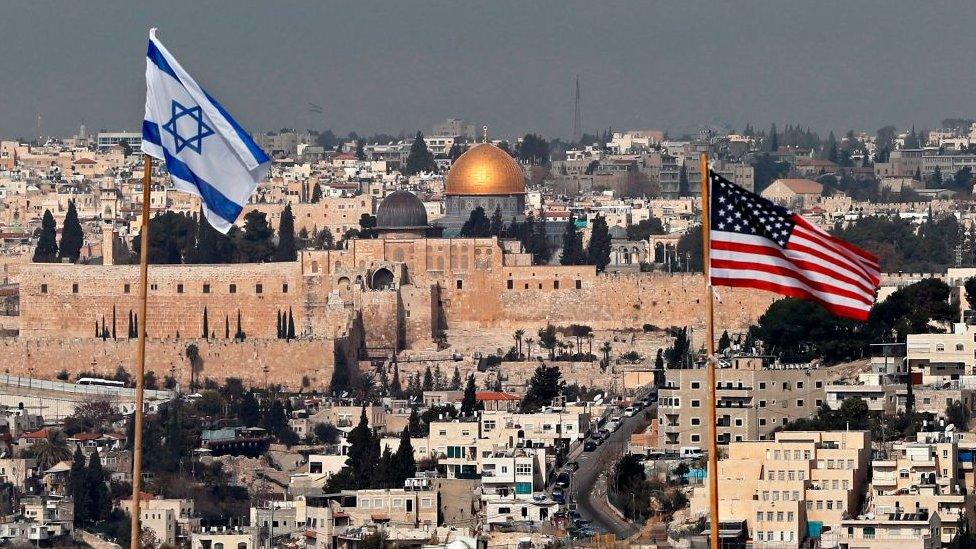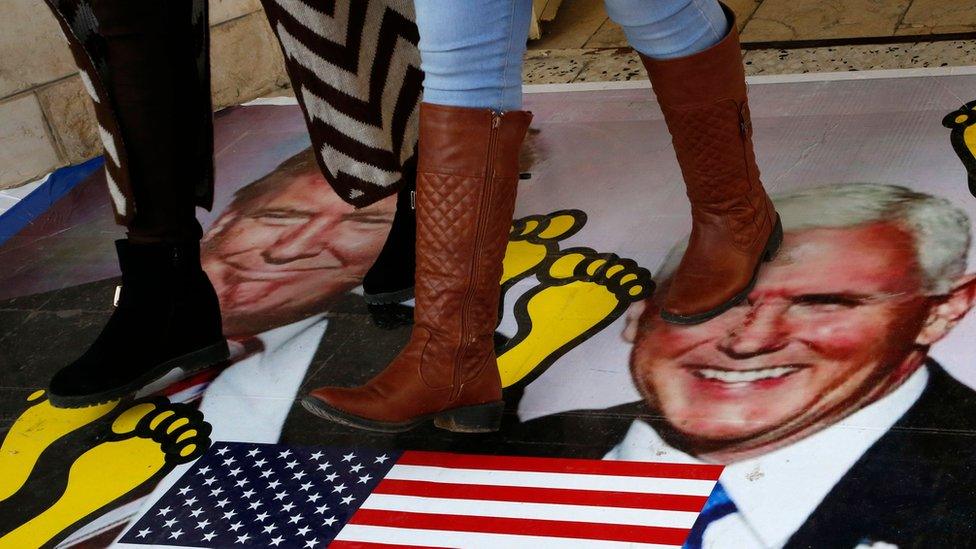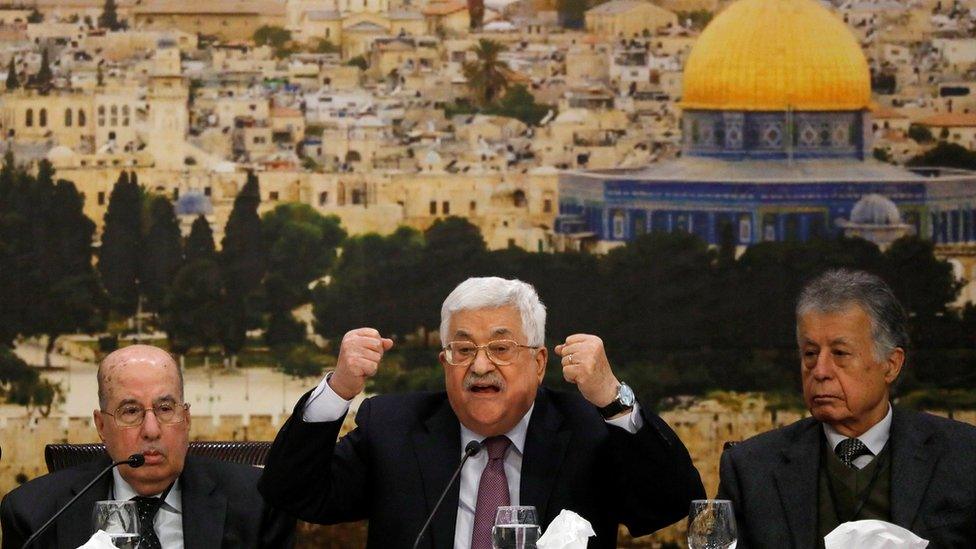US to open new embassy in Jerusalem in May
- Published

The Israeli and US flags fly high over Jerusalem in December 2017
The US Department of State has said that a new American embassy in Jerusalem will open in May.
The opening of the mission will coincide with Israel's 70th anniversary, the statement said.
The announcement brings forward the controversial plan, announced by President Trump in December, by at least a year.
A senior Palestinian official, Saeb Erekat, called the move a "blatant provocation".
The anniversary of Israel's founding precedes by a day what Palestinians call the Nakba, or "catastrophe" of their displacement in the 1948-49 Arab-Israel war.
On Friday, Israeli Prime Minister Benjamin Netanyahu hailed the embassy announcement as "a great day for the people of Israel".
Donald Trump's decision in December to recognise Jerusalem as Israel's capital and move the embassy from Tel Aviv, where all other embassies are located, infuriated Palestinians.
The declaration broke with decades of US neutrality on the issue and put it out of step with the rest of the international community.
The US Department of State spokeswoman said the embassy would initially be located at existing consular facilities in the Arnona district of the city.
Why is the move controversial?
The status of Jerusalem goes to the heart of the Israeli-Palestinian conflict.
Israel regards Jerusalem as its "eternal and undivided" capital, while the Palestinians claim East Jerusalem - occupied by Israel in the 1967 Middle East war - as the capital of a future state.
Why the ancient city of Jerusalem is so important
Jerusalem contains sites sacred to the three major monotheistic faiths - Judaism, Islam and Christianity - and Israeli sovereignty over the city has never been recognised internationally.
Within days of President Trump's declaration, a UN resolution was passed declaring any decisions regarding the status of the city "null and void" and insisting on its cancellation. It was backed by 128 states, with 35 abstaining and nine voting against.
Why is the latest announcement significant?
Last month, US Vice-President Mike Pence told the Israeli parliament that the move would occur sometime before the end of 2019.
The sudden change to this May has been seen by some as a deliberate snub to Palestinians.
Palestinians and Israelis react to US plan to recognise Jerusalem as Israel's capital
Mr Erekat said the US move "reflects their total insensitivities to what goes on in this region".
It "reaffirms our position that the US can no longer be part of the peace process," he added. "The US administration has become part of the problem and not part of the solution."
However, it was welcomed by Prime Minister Netanyahu, who said: "This decision will turn Israel's 70th Independence Day into an even bigger celebration."
"Thank you President Trump for your leadership and friendship," he said.
- Published5 January 2018

- Published18 November 2019

- Published14 January 2018
